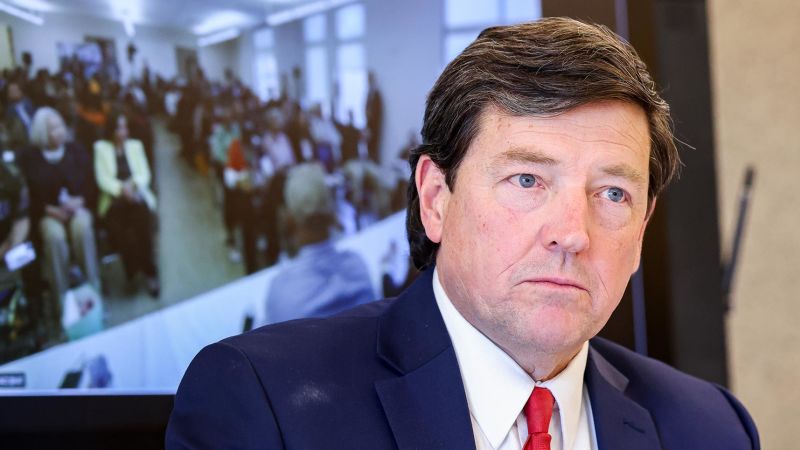On a recent Thursday, former President Donald Trump announced that a new nominee for the position of U.S. Attorney in Washington, D.C., will be revealed shortly. This decision comes in the wake of significant pushback from Republican lawmakers, which jeopardized Ed Martin’s chances of confirmation. Trump’s remarks came amidst the growing concern that Martin’s nomination may no longer be tenable within the political climate on Capitol Hill.
During a brief press interaction at the White House, Trump expressed his solidarity with Martin, describing him as “a terrific person” who simply did not receive the support he needed from influential figures. The former President indicated that while he had attempted to advocate for Martin, he felt constrained by the limited capacity to engage with resistant senators. He assured the media that a suitable replacement would be found, hinting at confidence in the new choice.
Interestingly, Trump did not dismiss Martin entirely but suggested that he would assume a different role within the Department of Justice, without offering a precise clarification on the future position. The President’s comments sparked curiosity regarding Martin’s next steps, prompting CNN to reach out for further clarification, although a response was not immediately forthcoming.
Senator Chuck Grassley, who serves as the chairman of the Senate Judiciary Committee—a crucial body responsible for the progression of Martin’s nomination—responded to Trump’s announcement with surprise. He stated that he had not been informed prior to the press briefing about Martin’s likely withdrawal from consideration. Grassley’s lack of foreknowledge highlights the disjointed communication between the White House and Congress, particularly concerning crucial judicial nominations.
The nominating process for Ed Martin encountered obstacles beginning earlier that week. Senator Thom Tillis, a Republican from North Carolina, emerged as a key figure in this unfolding drama when he announced his unwillingness to support Martin due to concerns tied to Martin’s remarks regarding the January 6, 2021, attack on the U.S. Capitol. Tillis, who plays a pivotal role in the Senate Judiciary Committee, had met with Martin on the day preceding his bold declaration that raised serious questions about Martin’s viability.
In past interactions, Tillis voiced apprehensions related to Martin’s public statements that criticized law enforcement officers who were tasked with defending the Capitol during the riot. He had categorized these as concerning and indicated that they influenced his decision not to back Martin’s nomination. Martin’s history as a defense attorney for January 6 rioters and his presence at Trump’s rally on the day of the attack further complicated his candidacy in the eyes of some GOP senators.
The issue worsened as Martin, in written testimonies to senators, failed to categorically acknowledge the violence that transpired on January 6. Moreover, he refrained from directly stating whether he believed the 2020 election results were legitimate. His evasiveness even raised eyebrows when he left open the possibility of Trump serving a third term, a notion that defies constitutional norms.
As highlights of the political tussle unfolded, it became clear that Tillis’ opposition effectively neutralized any hopes for advancing Martin’s nomination. The thwarting of his nomination coincided with an impending deadline for confirmation, set for May 20, which further jeopardized Martin’s interim position.
In the wake of Trump’s announcement, Senator Lindsey Graham noted that the party lacked the votes necessary to propel Martin’s nomination, implying that the decision to withdraw was not only prudent but essential under the circumstances. Graham’s comments hinted that the former President might already have a prospective candidate in mind, suggesting that observers should “stay tuned” for forthcoming developments.
The situation remains fluid, with significant attention on who will emerge as Trump’s next choice to lead the Justice Department in Washington. As political dynamics continue to evolve, this breaking story will likely undergo updates, emphasizing the continuing complexities of judicial nominations in U.S. governance. Contributions to the report from CNN’s Hannah Rabinowitz further enrich the coverage of this pivotal event.



